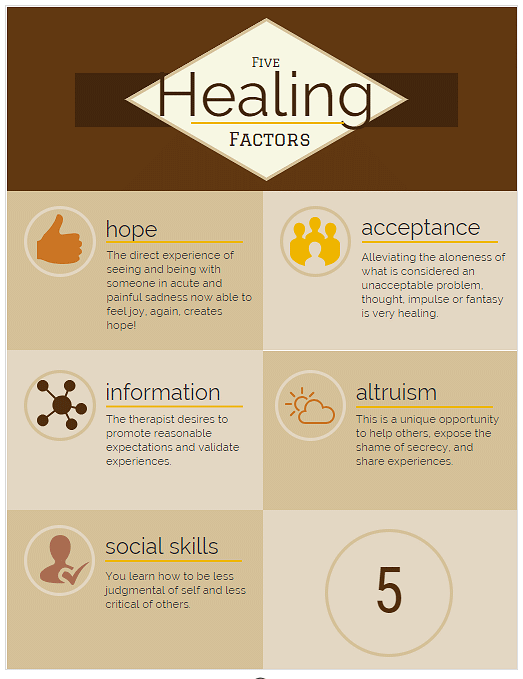Feel Good About Your Success, Talents and Achievements
You Are Not an Impostor!
By Margaret Sechler, LCSW
“Am I faking this?”, “Am I really that good?”, “I wonder if anyone will figure me out?”. These difficult thoughts permeate our self-talk as we battle with the acceptance of our success. It’s difficult being successful and talented when you don’t believe in yourself.
Changing the Life Script
Sub-consciously we think of ourselves in a play. We are following the cues, set changes and most importantly our script (or lines). Who wrote this script? Who has set this play in motion that has to be followed exactly? Starting to build a powerful, new script for our lives will help us overcome past messages.
Accept Your Success
Your success is real. Your achievements are hard fought. Our minds drift and start to discount positive things. We can over focus on the negative. We often allow small amounts of guilt to mount to a overwhelming intensity.
How to Make a Lasting Change
The positive influence and empathy of others is your first step. New Directions Counseling is offering a new group to address the issue of feeling good about your success. Read below the value of groups.
The Change Factors of Group Therapy are:
- Instillation of hope – group members enjoy the continual contact with others who are at a different point along a “coping-collapse-coping” continuum in their lives. Over time observing the improvements of someone inspires others to know it is possible for them too. The direct experience of seeing and being with someone in acute and painful sadness now able to feel joy, again, creates hope.
- Universal Acceptance—to see in others the same feelings, needs and experiences one has been dispels the “feelings of unique wretchedness” (Yalom). Alleviating the aloneness of what is considered an unacceptable problem, thought, impulse or fantasy is very healing. The perception of “I am the only one suffering” is often heightened by social isolation and the stigma of mental health disorders.
- Imparting Information—The therapist is an educator instructing on disorders and treatments. They desire to promote reasonable expectations and validate experiences. Members of the group share information with the therapist. This sorts through fact and myth in mental health care and disorders.
- Altruism— I have seen this wonderful experience of helping others ricochet back to accepting that help for ones’ self. This is a unique opportunity to help others, expose the shame of secrecy, and share experiences.
- Development of Social Skills—members of a group learn how to be helpful to others, as they learn how to be less judgmental of self and less critical of others. This is most important when needs and feeling are expressed.
“Group helps me to know I am not alone in what I’m going through.” – M.R. New Directions past group member.
Are you ready to join?
8 Saturdays starting February 22, 2020
12 – 1:30pm
5 spots remain
Join our next group starting on February 22!
Contact Us To Reserve Your Spot
______________________________________
Imagine Being Supported. Experience a Deep Connection.
The Power of Group Therapy
By Margaret Sechler, LCSW
“Group helps me to know I am not alone in what I’m going through.” – M.R. New Directions group member.

Is AA, NA, Al-Anon, Grief Groups considered Group Therapy?
Group therapy is uniquely different from community support groups. These groups often wonderfully run by spiritual organizations are led by peer mentors. In group therapy, the group is facilitated by a compassionate, caring yet highly trained and experienced professional. It is this expert that both collaborates and leads. A combination that simultaneously challenges and comforts the group members. The therapist is an active facilitator of hope—sharing positive experiences and expected outcomes. Over time, the group members are empowered and become the mechanism for change.
“Not only are you provided with honest, caring feedback, you also … are not alone in feeling what you feel.” – New Directions group member
The healing factors of Group Therapy are:
- Instillation of hope – group members enjoy the continual contact with others who are at a different point along a “coping-collapse-coping” continuum in their lives. Over time observing the improvements of someone inspires others to know it is possible for them too. The direct experience of seeing and being with someone in acute and painful sadness now able to feel joy, again, creates hope.
- Universal Acceptance—to see in others the same feelings, needs and experiences one has been dispels the “feelings of unique wretchedness” (Yalom). Alleviating the aloneness of what is considered an unacceptable problem, thought, impulse or fantasy is very healing. The perception of “I am the only one suffering” is often heightened by social isolation and the stigma of mental health disorders.
- Imparting Information—The therapist is an educator instructing on disorders and treatments. They desire to promote reasonable expectations and validate experiences. Members of the group share information with the therapist. This sorts through fact and myth in mental health care and disorders.
- Altruism— I have seen this wonderful experience of helping others ricochet back to accepting that help for ones’ self. This is a unique opportunity to help others, expose the shame of secrecy, and share experiences.
- Development of Social Skills—members of a group learn how to be helpful to others, as they learn how to be less judgmental of self and less critical of others. This is most important when needs and feeling are expressed.
“It’s good knowing you have a place to go free of judgement with people who have been where you are.” – B.F. New Directions group member
 Learn More about one of our Expert Group Leaders:
Learn More about one of our Expert Group Leaders:
Margaret Sechler, LCSW – After my graduate work, I had the good fortune to be in training with Ray Naar, Ph.D., Diplomate in the Practice of Group Therapy and author of A Primer in Group Psychotherapy for one year, followed by an internship in his practice to experience the master at work. I have been doing Groups for over 20 years including groups for people with lifelong mental health conditions—Schizophrenia, Bipolar Disorder, Schizophrenia, Schizo-Affective Disorder. It is important to me to offer an environment in which first-time members can speak of their symptoms and experiences in mental health treatment and be received respectfully. One of my favorite group experiences was for young women we called “Twenty-Something’s” to deal with their unique developmental phase. It was amazing to see the group gel over time through the sharing of similar struggles.
My personal experience as a Group Therapist is very satisfying. I enjoy helping to decrease aloneness and improve self-esteem for numerous individuals who have suffered alone most of their lives. It can be the beginning of connecting with others and often the first opportunity for many to shared their fears and experiences. Life experiences of verbal, physical or sexual abuse are shared in a respectful, confidential and caring environment as individual are ready. Symptoms, never spoken of before—such as self-doubt, psychotic thinking, hallucinations– that are incredibly frightening can be talked about and acknowledged. The group environment may be the first time a person experiences the combination of their experiences/symptoms and the warmth of acceptance.


 Learn More about one of our Expert Group Leaders:
Learn More about one of our Expert Group Leaders: